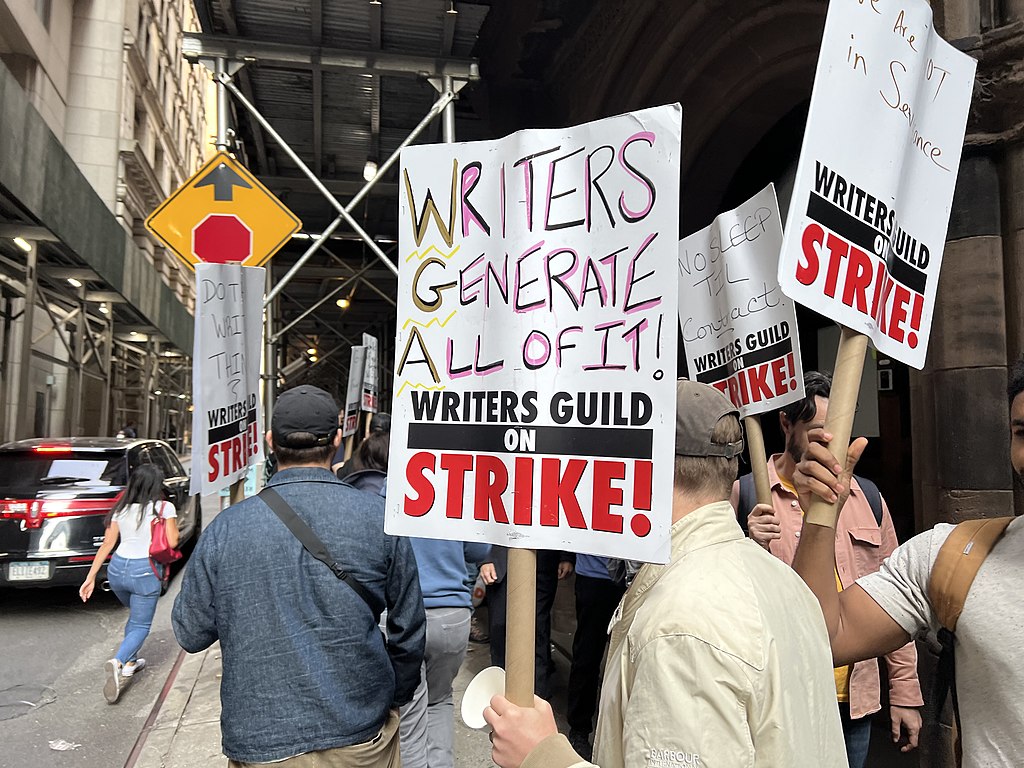The long-standing Writers Guild of America (WGA) strike came to an end in late September. But that wasn’t the end of the saga, since the actors’ guild (known as SAG-AFTRA) continued their strike and didn’t come to an agreement until Nov. 8.
You may be thinking, “Great, now I can go back to watching my favorite streaming show.”
It’s more complicated than it seems. Many Americans know that writers have been granted increased pay and many of their favorite TV shows have been canceled or postponed, but what do the clauses of the WGA agreement mean for the everyday entertainment consumer?
What was behind the strikes?
The strike lasted 148 days with topics being negotiated including increased wages for screenwriters, regulations in writers’ rooms, and the use of artificial intelligence when it comes to scriptwriting.
The strike was put into effect on May 2 by the Writers Guild of America (WGA) and was triggered when the WGA’s contract with the Alliance of Motion Picture and Television Producers (AMPTP). Negotiations between the two organizations for a new contract quickly failed.
One of the writers’ complaints was that they were receiving insufficient pay for streaming services (like Netflix, Hulu, and HBO Max) which came to dominate the entertainment industry during the pandemic. With this migration from TV to streaming, writers felt left on the sidelines.
In an article with the New York Times. screenwriter Danny Tolli said, “These studios are making billions in profits, and they are spending billions on content–content that we create with our blood, sweat, and tears. But there are times when I still have to worry about how I’m going to pay my mortgage. How I’m going to provide for my family.”
Meanwhile, studios began to introduce the concept of using artificial intelligence (AI) to enhance scriptwriting, and writers feared that this could eventually lead to their jobs being eliminated. To prevent studios from abusing AI and putting screenwriters out of work, the WGA was demanding protections be included in the new WGA contract. Terms included the minimum number of writers that have to work on a script, as well as AI being prohibited from rewriting or writing literary material (screenplays, sketches, stories, dialogue, etc). For more details, see the agreement terms on artificial intelligence here.
Tensions increased in July of 2023 when the SAG-AFTRA organization, the American actors’ union, also went on strike concerning similar concerns. Unionized actors called for better pay, better working conditions, and better treatment overall.
As noted previously, by Nov. 8 both unions had ended their strikes after coming to a resolution with the Alliance of Motion Picture and Television Producers.
How will the aftermath affect viewers?
Although things are looking relatively bright for employees in Holywood, the question remains how this will affect everyday customers of the entertainment industry.
The strikes already resulted in the cancellations or delays of many shows. Even popular shows like “Stranger Things” and “Cobra Kai” didn’t escape from getting suspended (sometimes indefinitely,) and other shows like “In a League of Their Own” were fully axed despite their positive ratings. “Deadpool 3” was just one among many upcoming movies delayed by the SAG-AFTRA strike.
Yet, as prices in the U.S. for material goods continue to rise, it seems digital goods will also be increasing after the WGA and SAG-AFTRA strikes. An article by Wall Street Journal editor Jessica Toonkel titled “Netflix Plans to Raise Prices After Actors Strike Ends” noted that in the last year, streaming prices overall have gone up by 25%. Now, Netflix is considering raising its prices another $3 for their ad-supported streaming plan.
“I’m kind of sad about Cobra Kai being delayed because the last season was really good and left off on a cliffhanger. I understand why it was put off, though, [so] I’m willing to wait for a few months or even a year,” said junior Christopher Crisostomo-Hernandez.
So for viewers, the ultimate outcome of these Hollywood strikes is likely to be this: Wait more and pay more.






